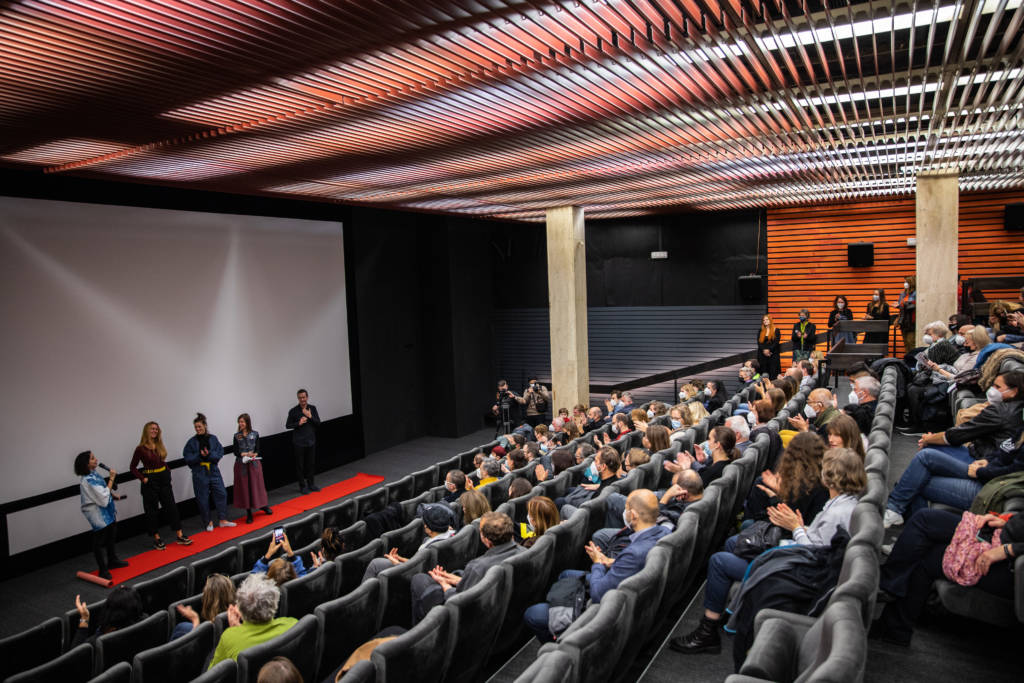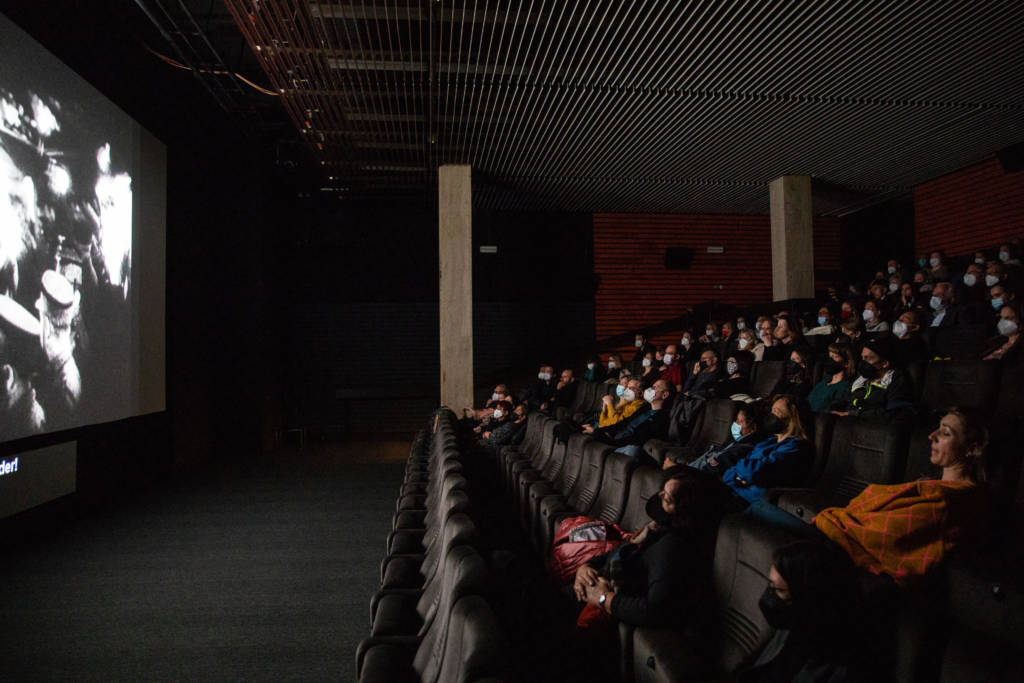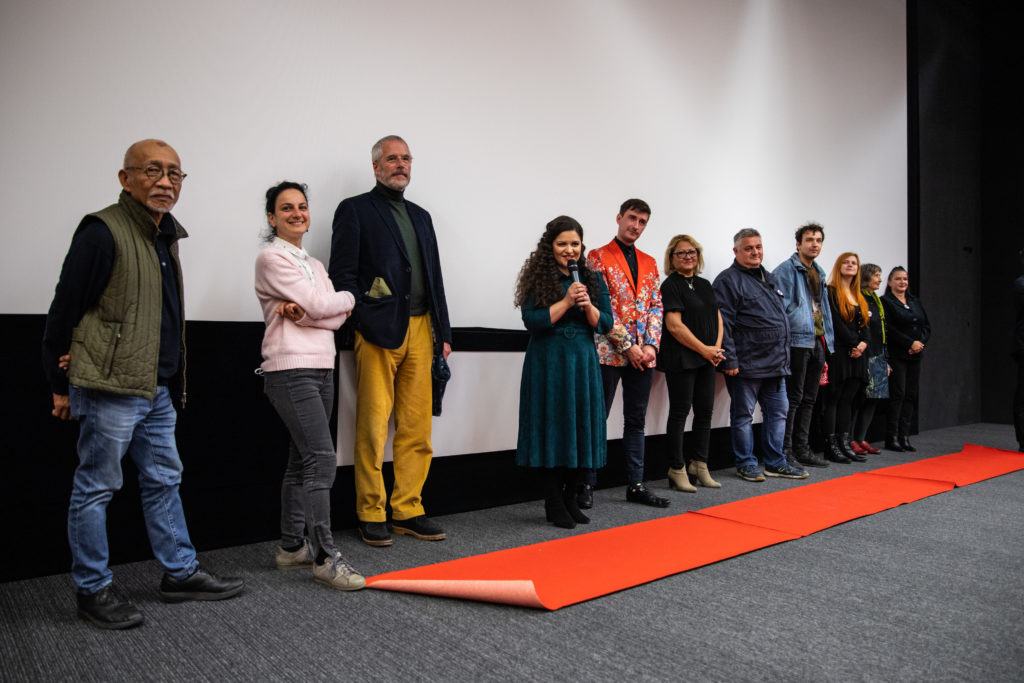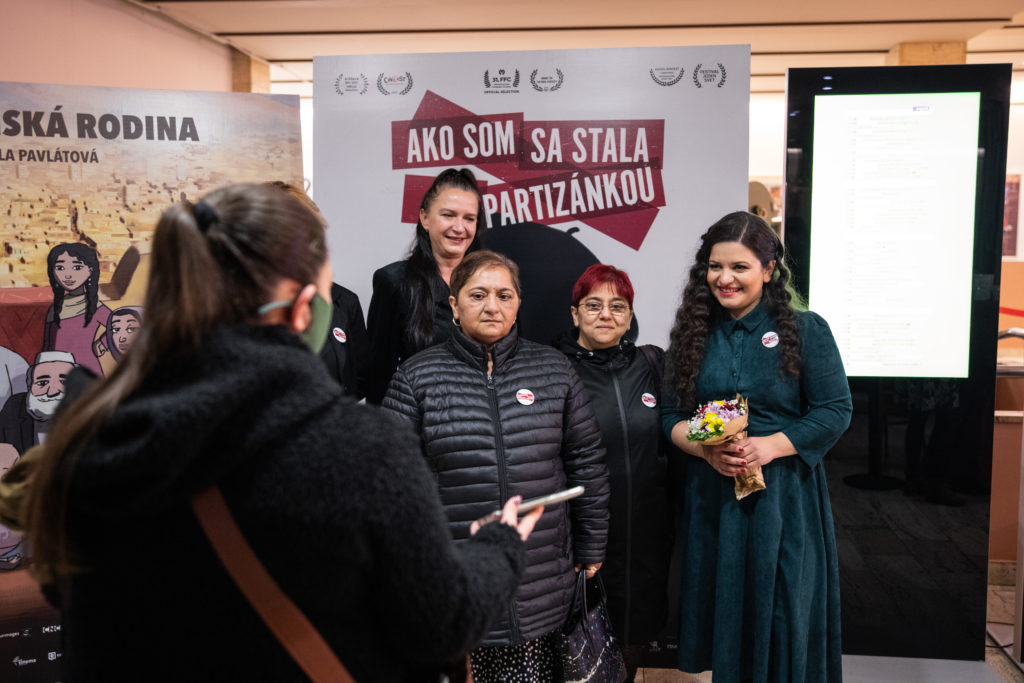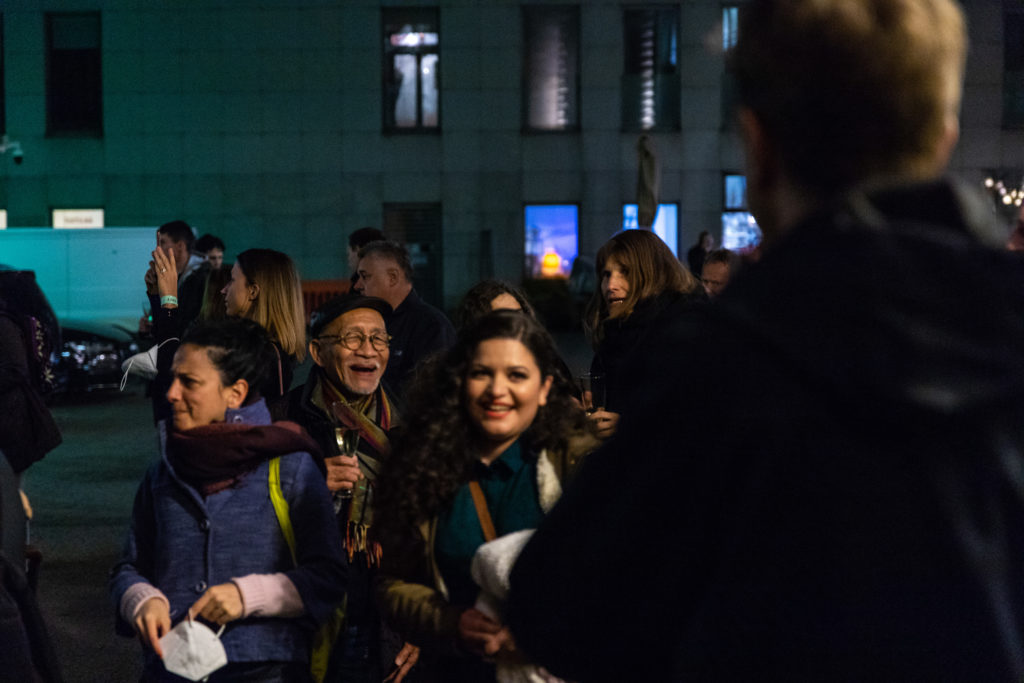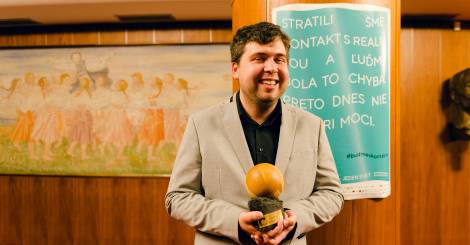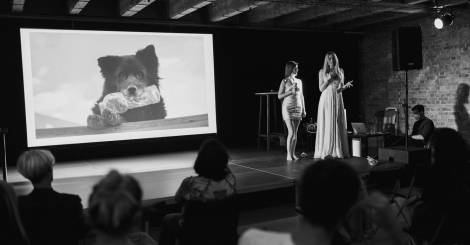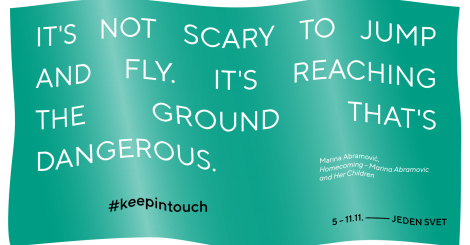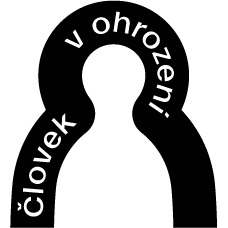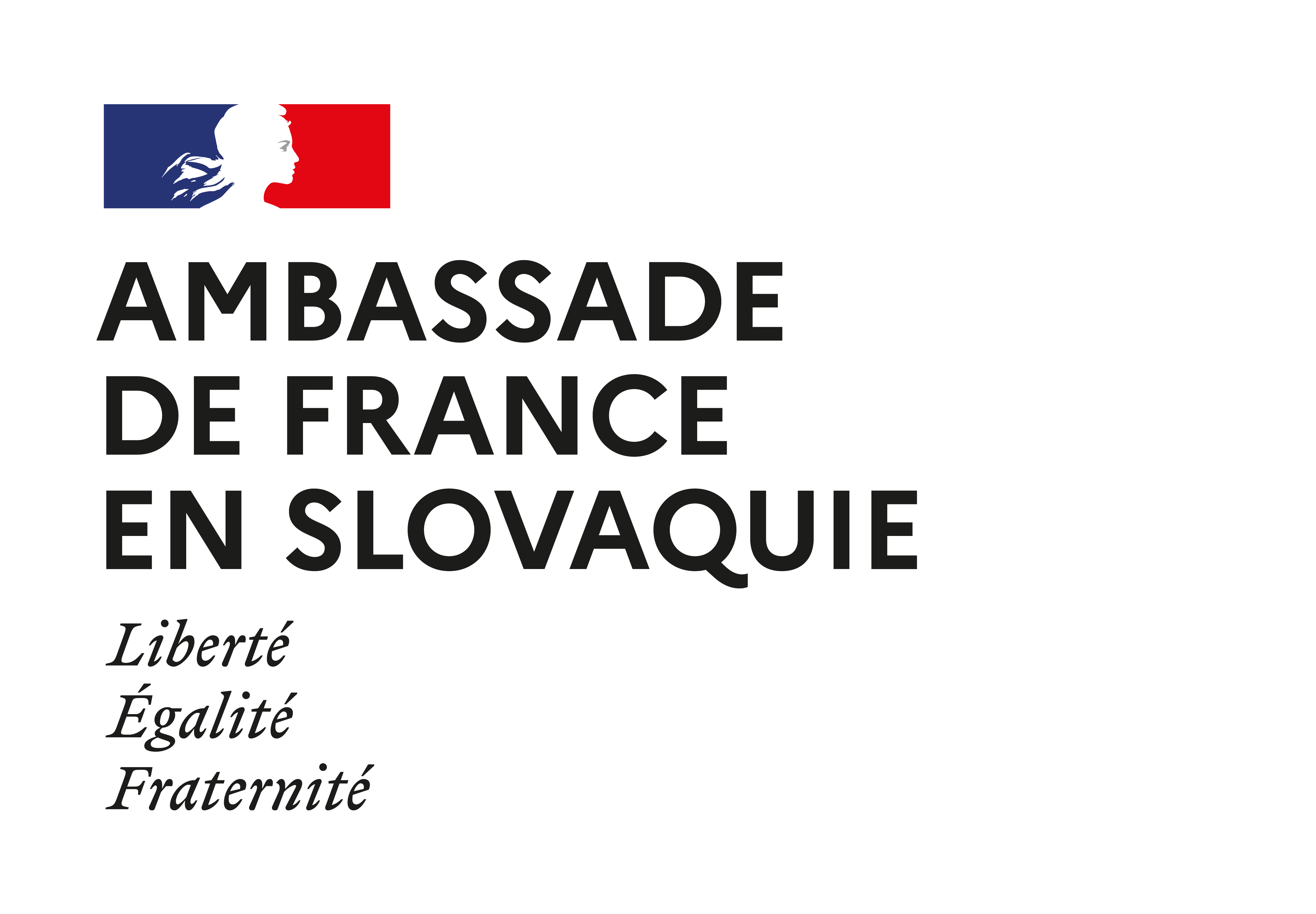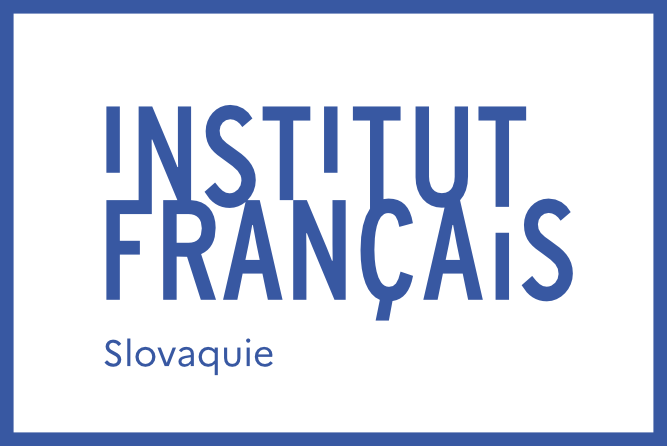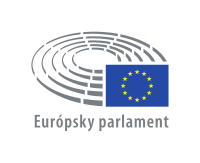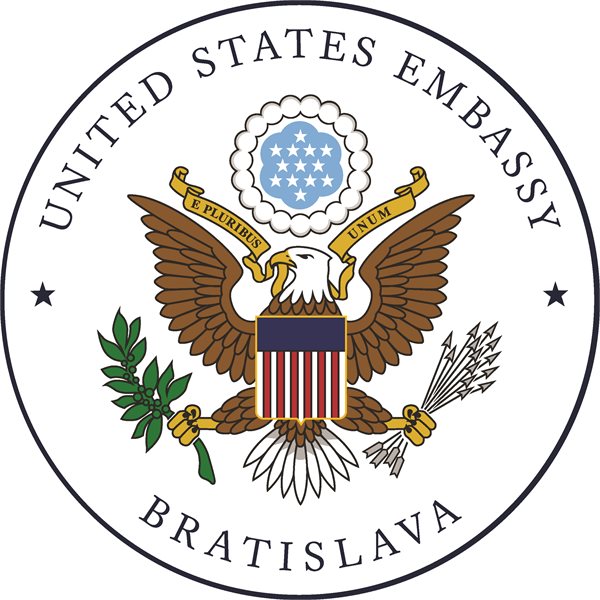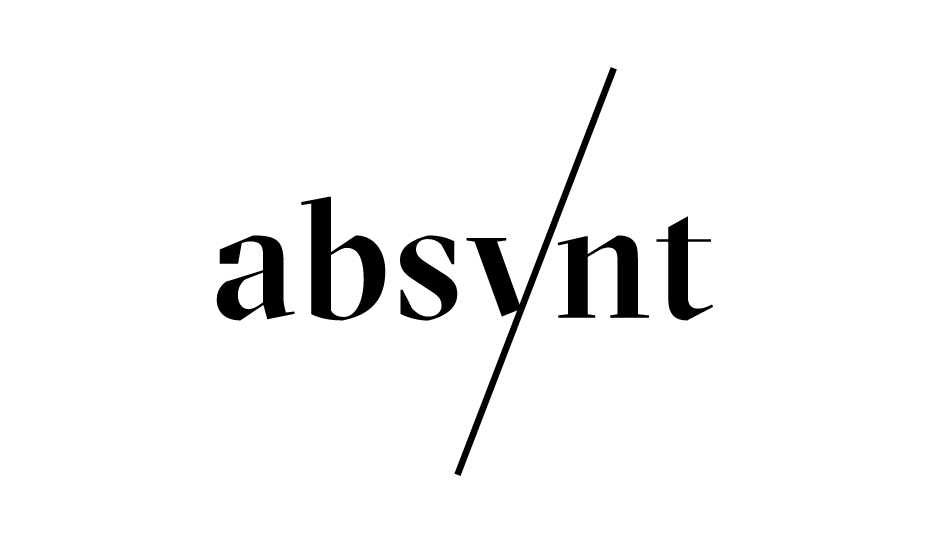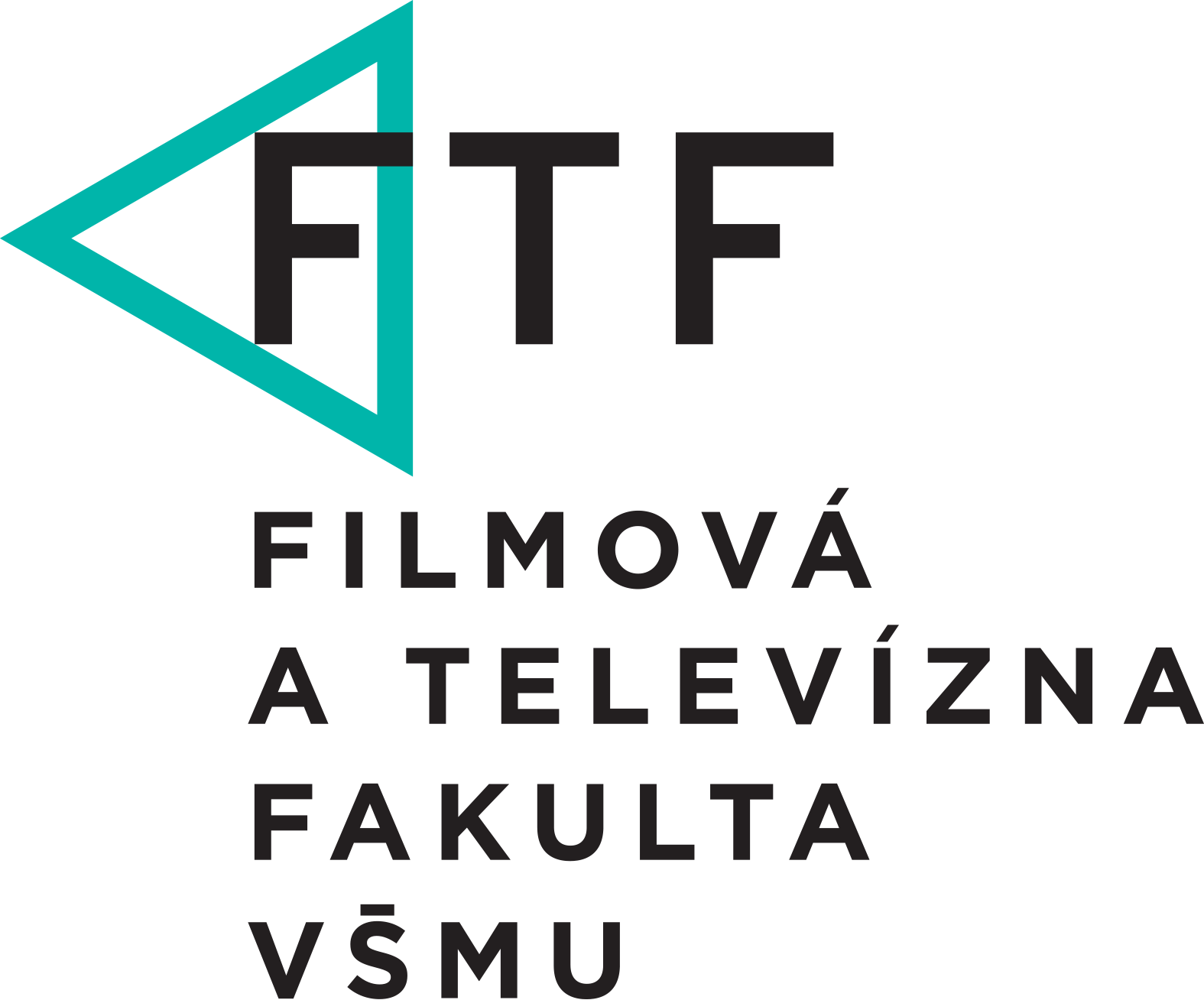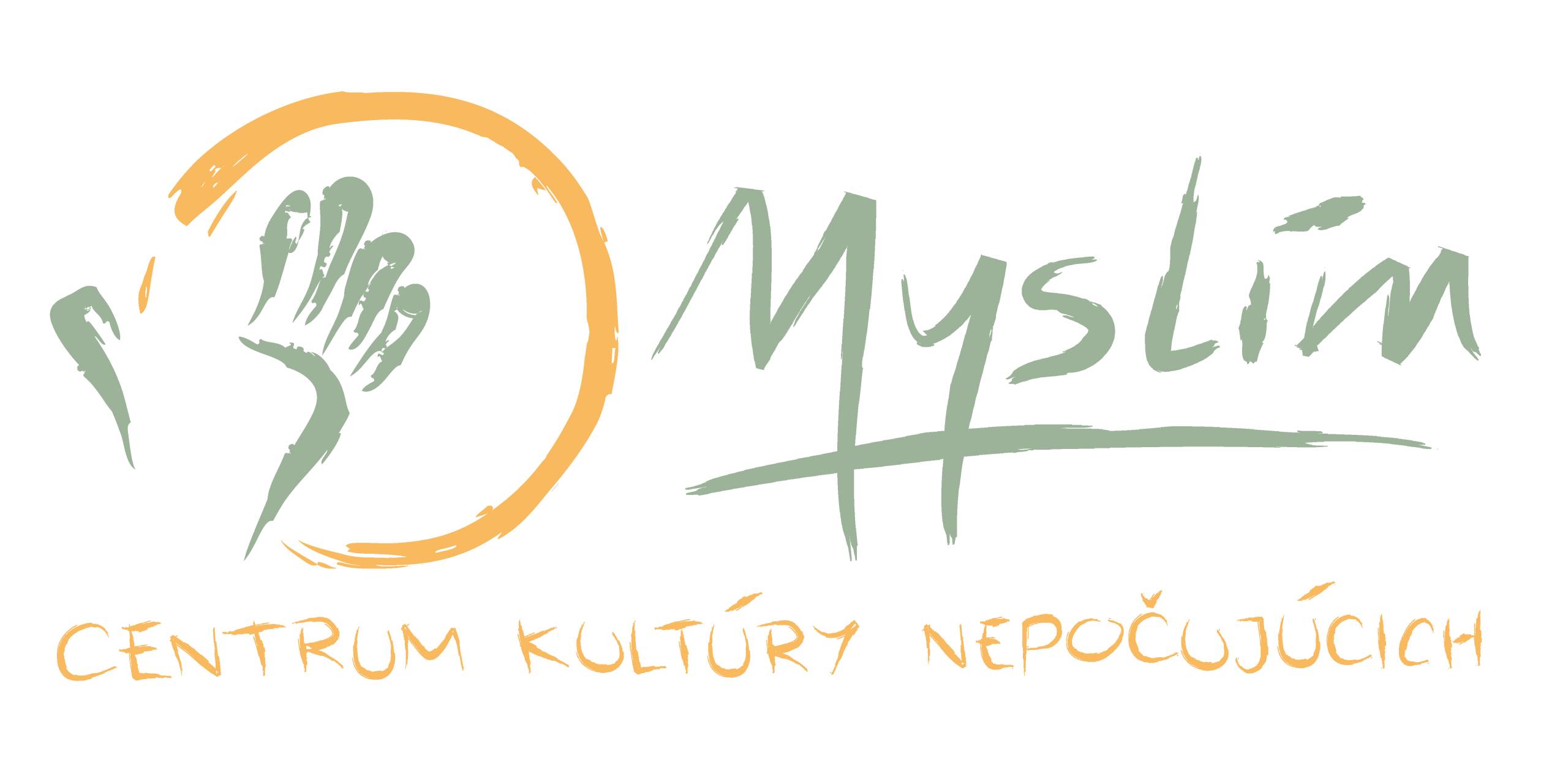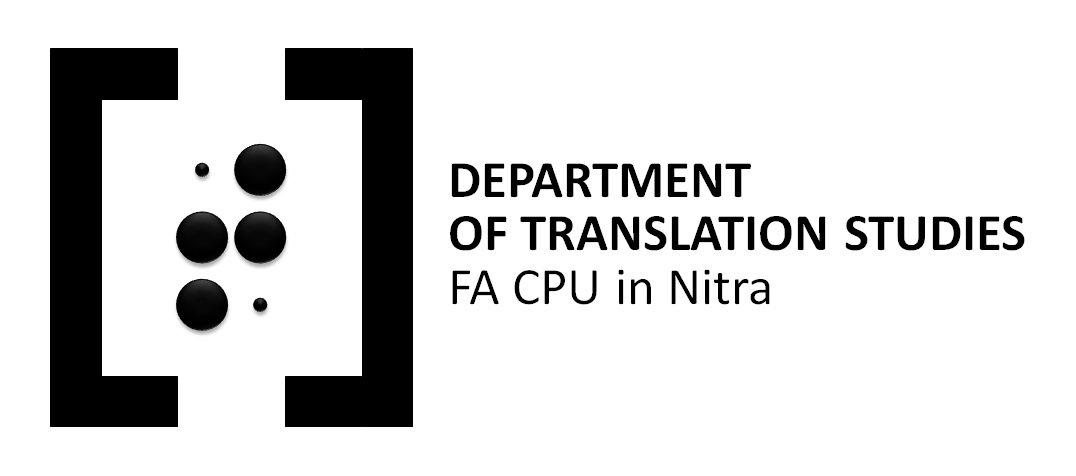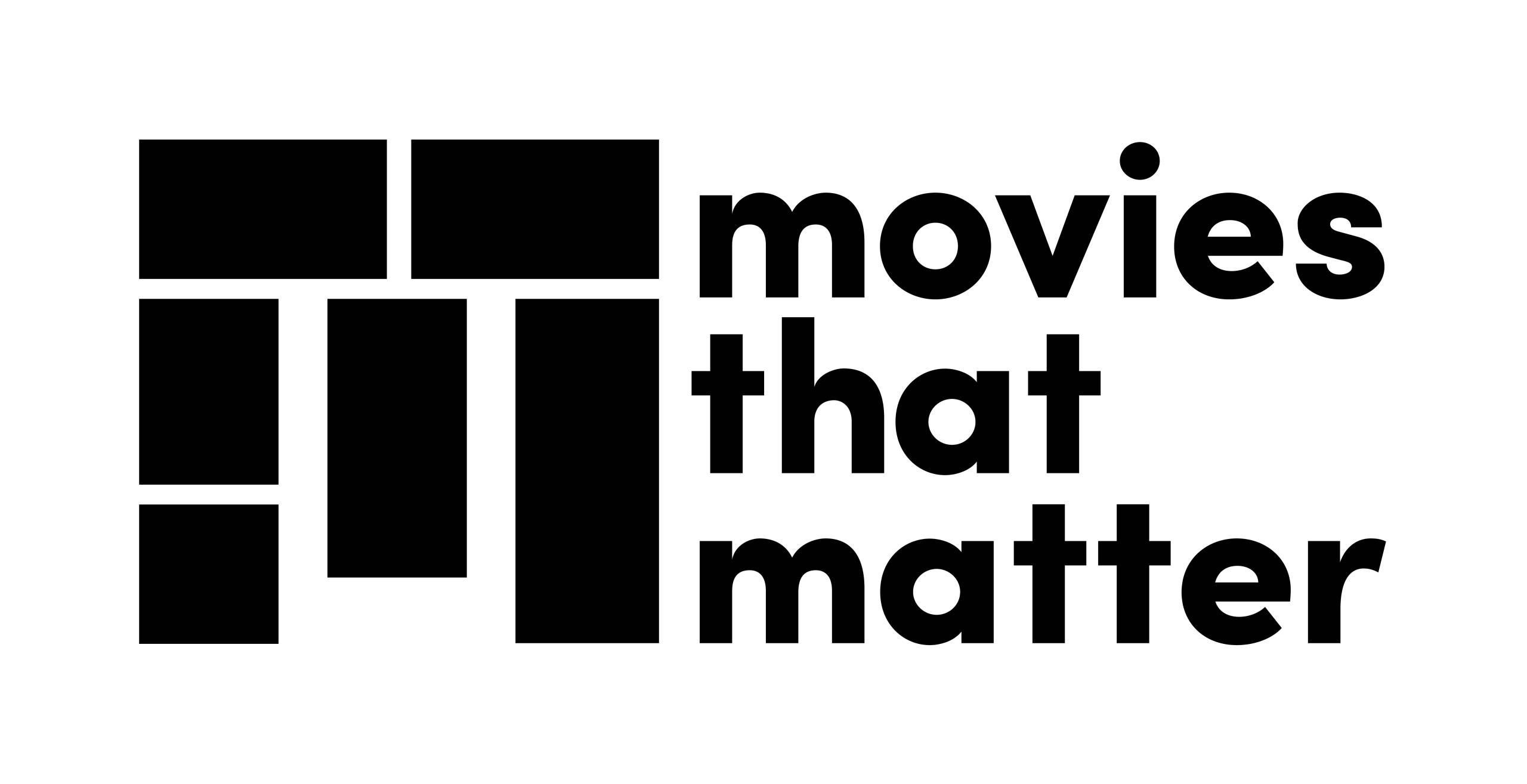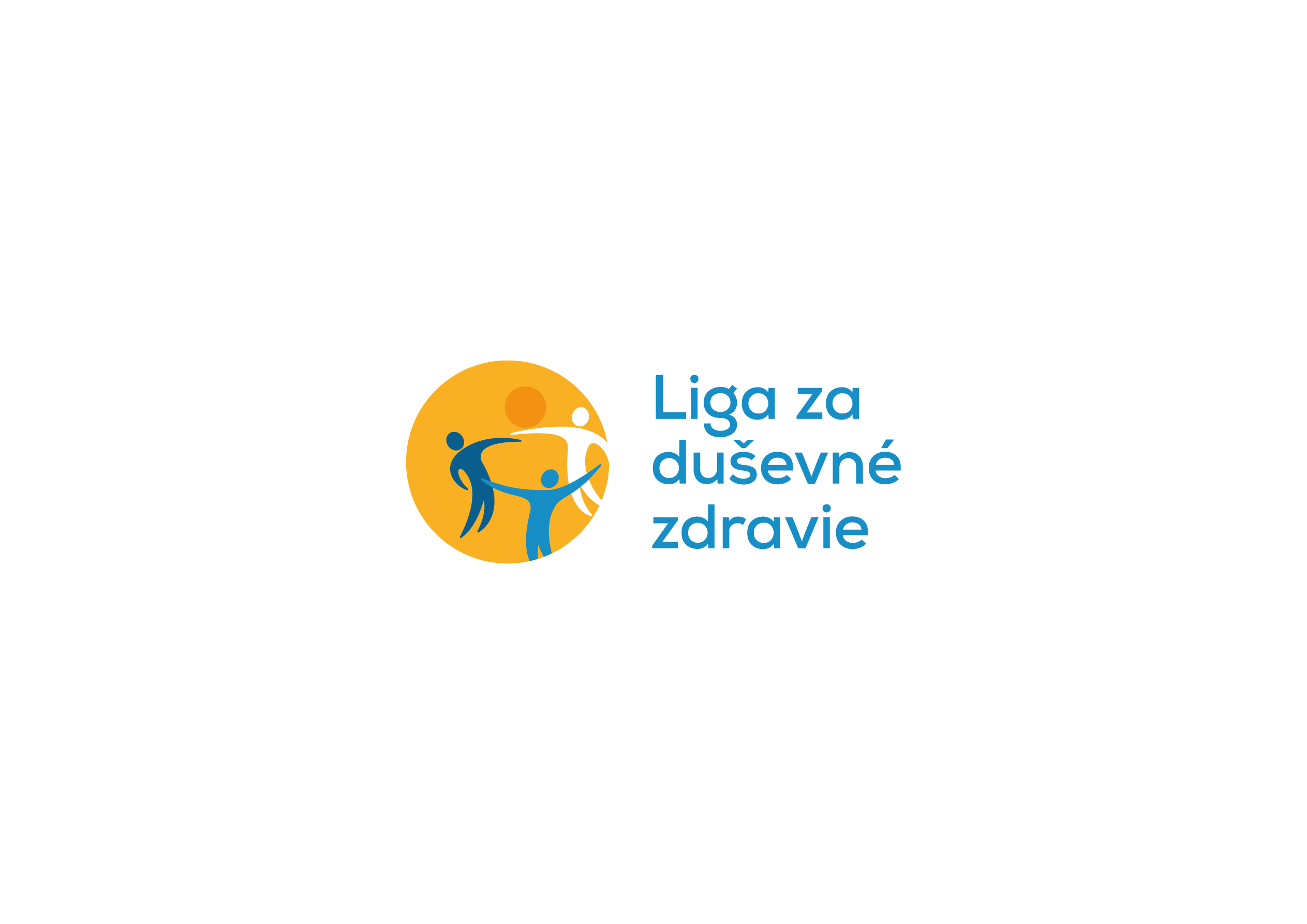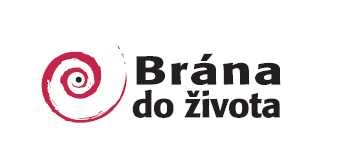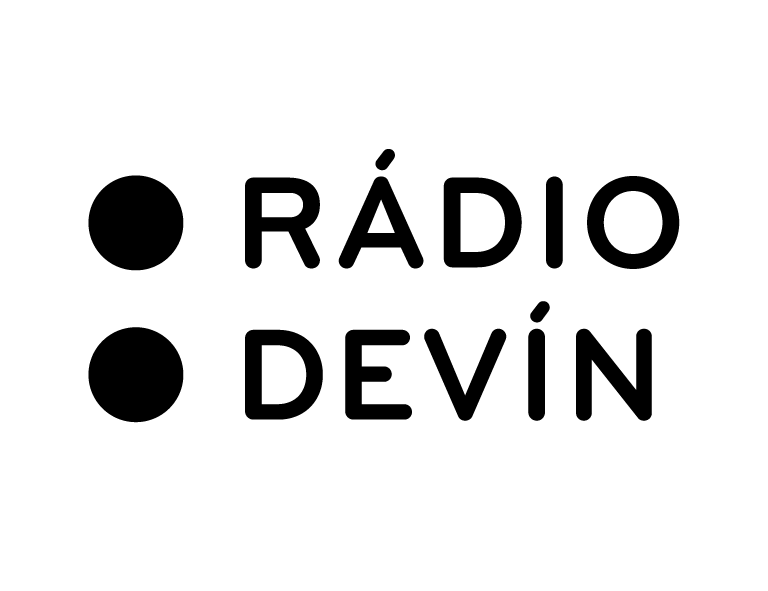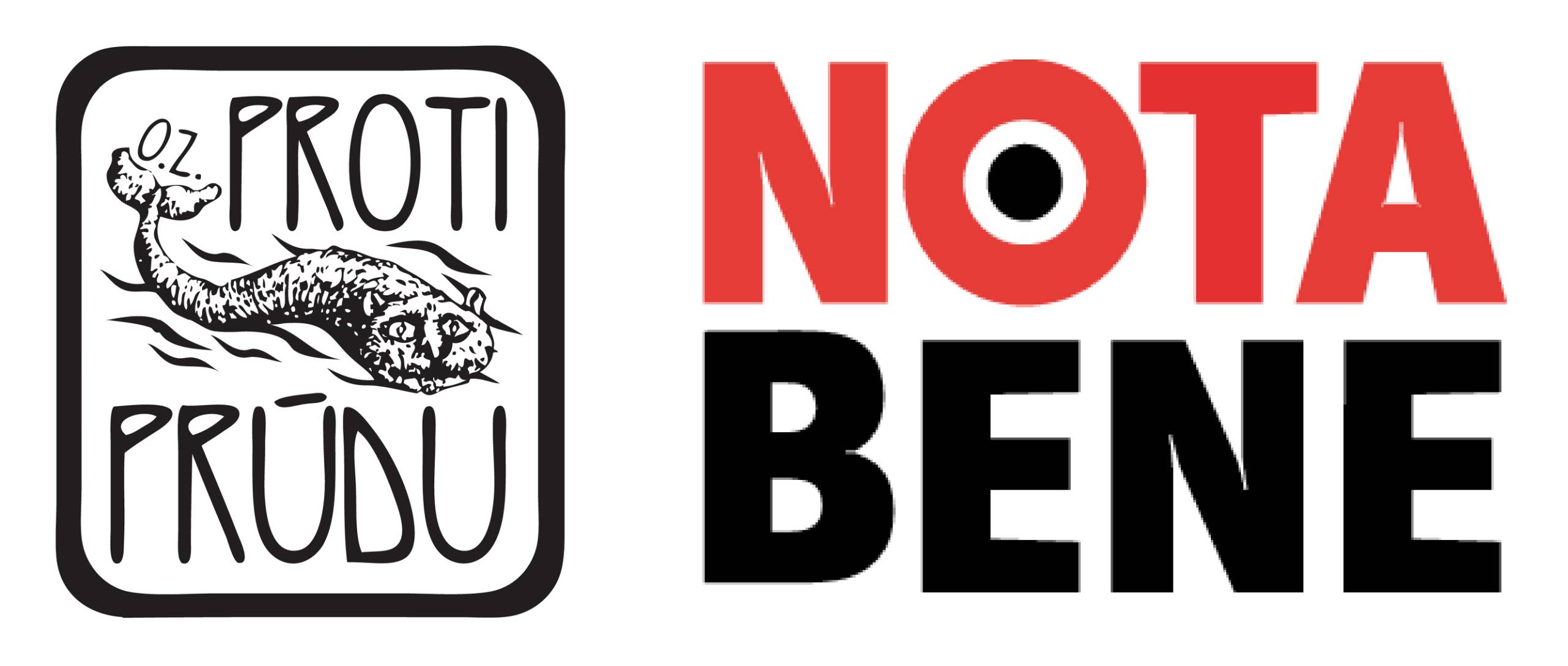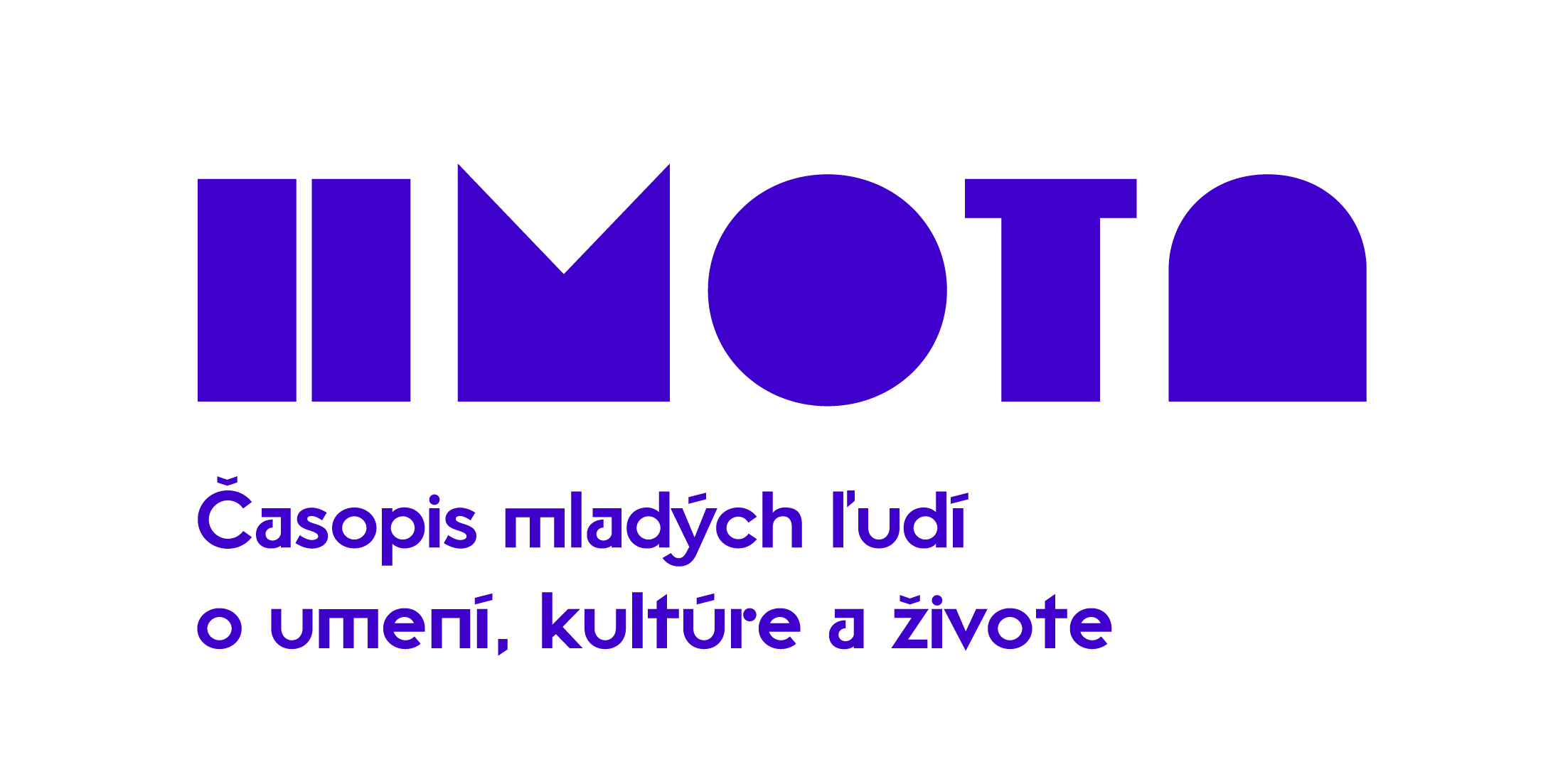An open letter to Filmmaker Vera Lackova and to One World Film Festival Executive director Eva Krizkova
Subject: Reflections on How I Became a Partisan, Vera Lackova’s first fulllength documentary film: winner of the Award for Cultural Diversity, one of three main prizes at the 21st edition of go East filmfest in Wiesbaden, Germany, April 2021.
By CAMILO C. ANTONIO
Dear Vera, Dear Eva,
Kudos and may Spring flowers bloom for you both in screening a quiet, yet politically
charged documentary film that turned out to be a real première event at its screening
in Bratislava on 5th November 2021. My wish is that this significant film, framed
within an intimate story, be made accessible to many more venues and that it be
honored in the same way as at Bratislava’s One World Film Festival, which decided
to open an important human rights Filmfest edition in Slovakia with a clear statement:
that what the NGO People in Need most yearn for, perhaps even more than tangible
and immediately physical needs like food and shelter, is respect.
The film captures stark images and evidence about how racism pervades society at
every level and is directed especially to persons of color, the virulence of which will
need to be addressed before more lives are lost. It is this rallying cry that makes the
film “How I Became a Partisan” even stronger, as a cultural manifesto on a par with
media voices in the U.S.A. and the E.U. during the last year that helped give visibility
to and amplify debates around such movements as Black Lives Matter, MeToo and
Asians Arise.
That the public rose for a standing ovation is a recognition of the many critical issues
on the plight of the Roma as a minority within E.U. countries that call for urgent
attention. The film flashes lights of urgency as well as providing insights on other
minority groups like Hispanic Asians to which I belong. And it points to courageous
platforms for intensifying the discourse on what is being ignored: a racism as ragingly
pandemic as Covid-19 and that is being dealt with only through cosmetic decisions,
because politically compromised.
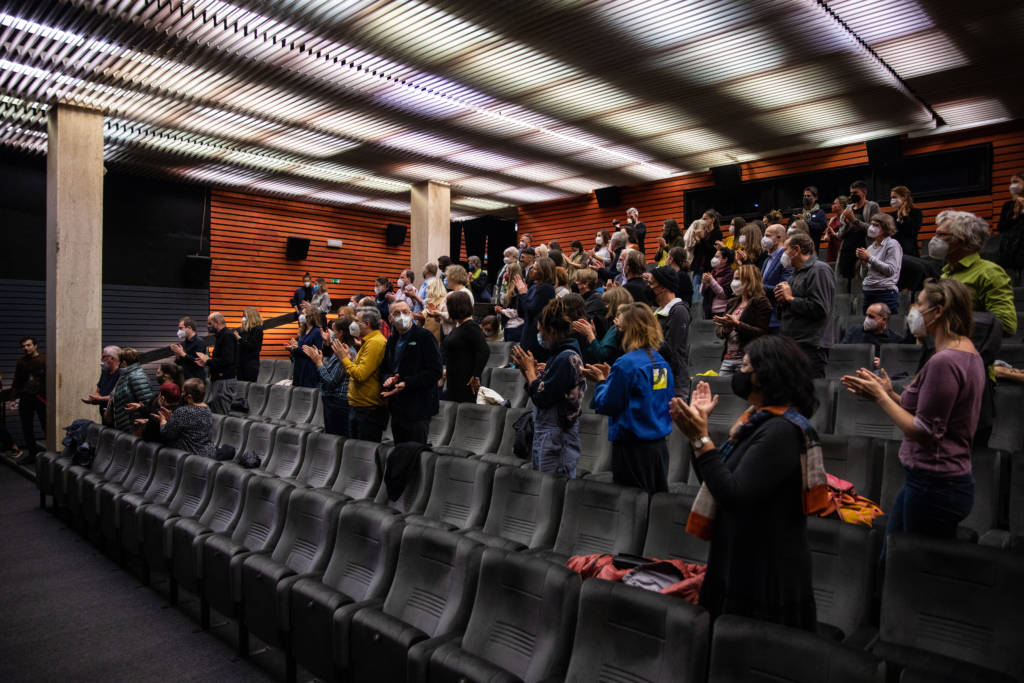
Produced by Media Voice, the NGO that you, Vera, set up and continue to lead, it
has been my privilege to have seen your film project develop from its conception
through to post-production. With this film, you take us on a personal journey
revealing a dark side of humanity that paradoxically opens a Pandora’s box. For
while you shed light on the largely ignored role of the Roma in continuous resistance
against the Nazis, the resurgence of fascist and racist movements all over the
Western world is revealed as a palpable and persistent problem. When compared to
those who rang the alarm bells on the effects of climate change already in the early
1970s, your film is also a wake-up call just as Greta Thunberg and the Fridays for
Future movement have been saying; it’s desperately late but still we need to act
before yesterday takes over fully in even more brutal inhuman ways.
The blend of directing and acting is superb, considering the film is your first. As
director, scriptwriter and heroine-protagonist, you created a documentary that
became an elegant memorial to your great-grandfather about whom you heard only
from a paternal grandmother who brought you up as her foster child and as a sister
to her own daughter, Marcella. Significantly, you tell a unique story affectionately
without losing your distance as a cinematographer and without compromising an
honest search for the truth: weaving a mosaic of pictorial and dialogic fragments into
a reel of cinematic realities within the dramaturgical tension that holds them together.
Interestingly, you not only share new information about what is not yet widely known,
but you also show the seemingly serendipitous way that you conducted research with
rigorous tenacity in following how one cue leads to others while keeping a firm grip
on the thread of the film and its vision. Strong visuals play out, particularly in the way
you hold your composure, donning the multi-colored jacket – which Marcella derided
as being “too gypsy” – to special events that you went to and to interviews you gave.
It was particularly touching how you faced a barrage of questions and carried on
calmly in the face of shameless and spiteful comments hurled against the Roma
minority with which you proudly identify.
The special montage and collage devices that the film brings together contains
archival footage and current film material, most especially where your speech, Vera,
at the 75th National Uprising Exhibition, is juxtaposed with that of the Slovak
President who is speaking at another location. The impromptu dialogues with
different protagonists are brilliant as are those between Marcella and her partner:
both of whom come through as humorous and charming precisely because their
exchange exposes unguarded truths about each other’s deeply unconscious
participation in discriminating against those who are stigmatized by color bias such
as repeating dangerous rhetoric based on clichés and stereotypes.
The cinematography captivates by its make-believe simplicity: the team captured
complex images that are very moving in subtle and nuanced ways at many different
levels. As an auteur-director’s tribute to ancestral forebears, your documentary film is
an immense achievement, a remarkable memorial to the Roma and other partisans
who fought against the Nazi regime, and a dignified testimonial to your foster mothergrandmother, great-grandfather, sister-aunt Marcella and daughter Daria, all of whom
you honor with a wonderful work of art whose significance will live on.
Jan Bodnár, the film’s executive producer expressed much relief when I asked him
how he felt: “I am very glad that we managed to complete the movie after four years
and that we were rewarded with a standing ovation that lasted like it wasn’t going to
end at this Slovak premiere, which opened an important national human rights film
festival.” People stayed on in front of the Cinema Lumiere after the film’s screening
and I gathered that the buzz was all about how it demonstrates courage for all the
meticulous research it entailed as well as a unique heroism for all the persistent
queries and interviews that were carried out. It is marvellous how simple step-by-step
questions led to meaningful responses and surprising discoveries. This approach
reveals embedded racism and also discrimination that runs throughout history and
among individuals and groups at different social levels, as Marcella unwittingly
reveals. “I’m the one people are going to go for on many sides, family members,
friends and enemies”, she said to me, with a mixture of pride and anxiety. Poignantly,
without sparing personal relationships, the film exposes how critically discriminating
minds work even within the confines of our domestic spaces.
The film’s storytelling unfolds naturally without any of the usual cinematic tricks to
gloss over or sanitize realities: protagonists are portrayed as they are in real life. A
narrative is spun from the filmmaker’s promise to a dying grandmother-mother. Thus
the film begins with straightforward scenes that touch the heartstrings up until the
point where the same string of your voice, Vera, returns to pass the story on to your
baby Daria and the next generations: the thread that would convey a greatgrandfather’s story as but one neuronal interplay of heroic poetics and multilevel
human odysseys.
For that kind of generous giving or große Hingabe as the Austrians say, Thank You,
to you and the Media Voice production team as well as to all who contributed in small
and big ways.
And thank you for acknowledging the ERSTE Foundation Roma Partnership and me in the film’s credits. Franz Karl Prüller, the former board member of ERSTE Foundation under whose direction the Partnership was developed, said, “ Vera’s film is specially touching in the way it weaves and successfully blends complex fabrics of life at different levels: personal, social and historical.” Alina Serban, who became the Partnership Project Manager, also came with friends from Vienna to the event. We all witnessed how the public got to their feet at the end of the film’s screening for a thunderous standing ovation that lasted for a long while. Owing to the Covid-19
pandemic, no official celebrations could be held, but we were privileged to have been part of the energetic spirit and chatter at post-impromptu receptions, first in front of the theater festival venue and later in a restaurant bar.
Franz said: “As colleagues in ERSTE Foundation, we really appreciate Media Voice’s
unique outcome: a film that will have an effect far beyond the committed but limited
group of people and organizations taking part in the Roma Partnership. It tells an
eternally valid story of heroic resilience. And most importantly, as Vera’s character
demonstrates, her film addresses a quiet tenacity in the face of adversity and
discrimination, of untold suffering that most of humanity carry as part of their cultural
baggage – thus an encouragement for all of us!”
Surely, viewing the film on the big screen at Cinema Lumiere in one of Bratislava’s
cultural centers and being there when the audience applauds wildly, as happened on
the opening night of One World Filmfest, makes a huge difference to such an
engagement in cultural activism: a great morale booster! Our wish is that the film
“How I Became a Partisan” finds more venues for significant screenings in the
presence of media influencers and dynamic platforms to keep spreading the news.
**Camilo C. Antonio
The ERSTE Foundation Roma Partnership was a seven-year project, formalized
and supported after Camilo, with Franz’s informal support, initiated it in 2010 and
helped steer it through to completion in 2019. Subsequently Media Voice became a
member of the Partnership and, under Vera’s leadership, conducted a training
program in the Czech Republic for young Roma and non-Roma in audio-visual skills
and videography. In 2019, about 15 member NGOs working in Roma communities
decided to continue the Roma Partnership as a flexible alliance, of which Vera was
elected Executive Coordinator.)
** Camilo C. Antonio is a flipped Euraustrian poet who founded, facilitates and
curates cultural activist projects with a Vienna-based performance group called
UrbanNomadMixes. He writes poems, essays and critical art reviews; is a member of
the steering committee of the Caribbean Tales Media Group and was the chair of the
Jury of the Caribbean Tales International Film Festival in Toronto from 2010-2015.

